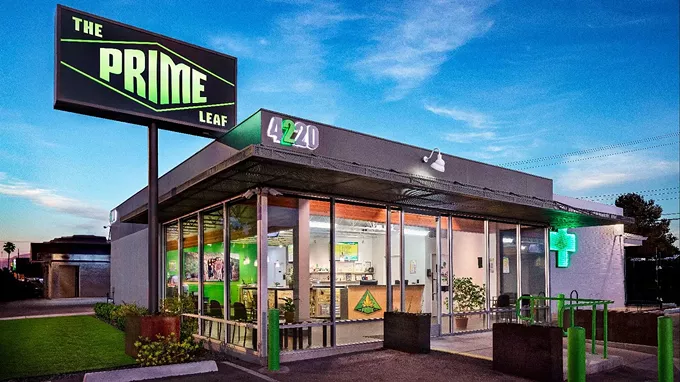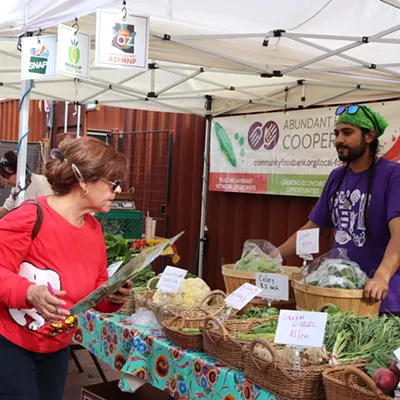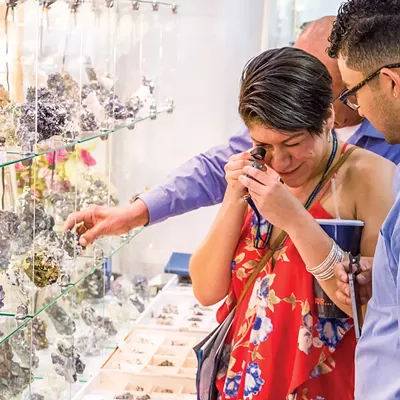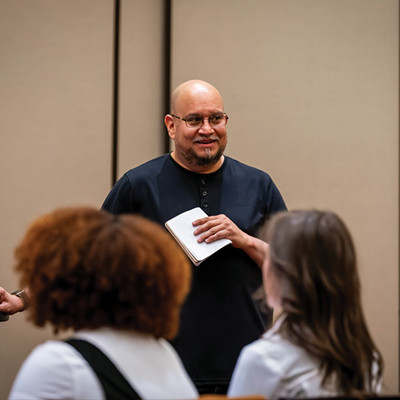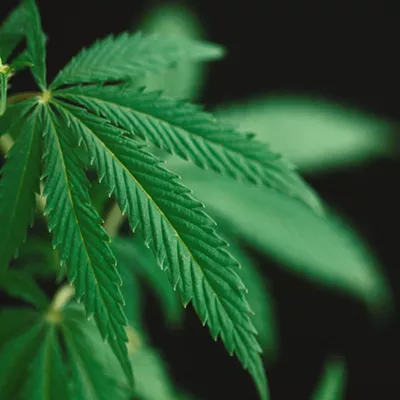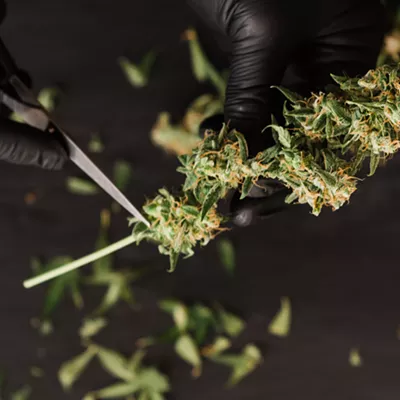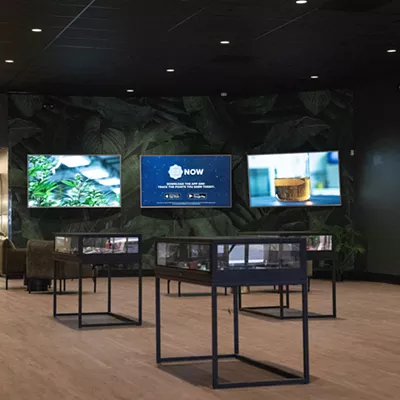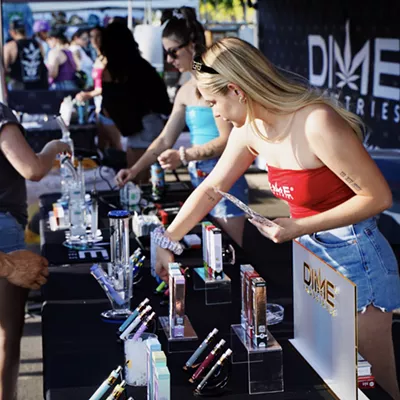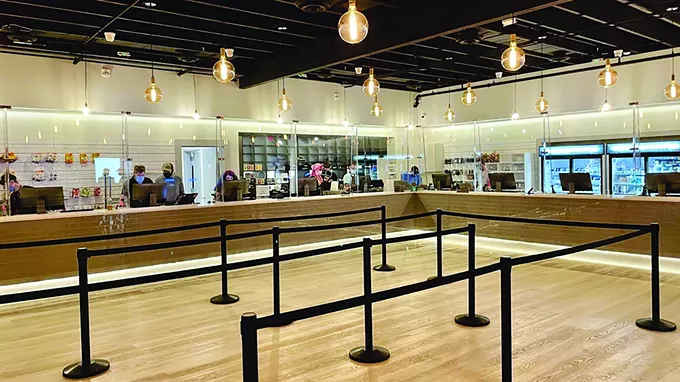
Vicky Puchi runs one of Tucson's original and very successful marijuana dispensaries. Puchi, a Tucson business owner, grew up in Nogales. When asked about hemp, Puchi said nowadays no one is growing industrial hemp for rope and plastics anymore. “They’re basically breeding the cannabis plant to make CBD, with a very low level of THC, and the value of hemp has gone down, from a couple thousand dollars (revenue per acre) to maybe $300," she said.
Puchi could easily get into that game, as indeed too many operators already have (hence the lowered value of the crop, due to an excess biomass of flower and leaves). Instead, the owner of Earth’s Healing is still Tucson’s sole woman-owned and family-run chain of marijuana dispensaries.
“The problem with hemp is that it’s not regulated, and that’s creating some problems,” Puchi said. “Regulations are good when you’re dealing with this type of product.”
Ironically, hemp — once considered the one legitimate agricultural commodity of the cannabis plant, used for making everything from textiles and plastics to car floorboards and livestock feed — is now the bad guy in the never-ending battle to fully legitimize the commercial marijuana industry.
Since the passage of the 2018 Farm Bill, which legalized the production of extracted cannabinoids, or CBD oil, from the hemp plant as long as the product contained a concentration of 0.3% or less of the psychoactive compound tetrahydrocannabinol, or THC, a glut of opportunistic operators has rushed into the field. By 2020, 48% of farmers surveyed by Whitney Economics, which tracks the cannabis industry, said they were already reporting leftover inventory, with wholesale prices dropping from $40 per biomass pound in 2018 to $2.50 or less only two years later — even as the CBD field overall exploded into a $2 billion industry.
To rise above the fray, some hemp farmers began focusing on extracting from the plant a chemical compound known as Delta-8-THC — only slightly chemically different from Delta 9, the main psychoactive ingredient in marijuana, but not explicitly outlawed by federal law.
“That created a sort of loophole that allowed for hemp products with high levels of synthetic THC and other cannabinoids to be sold at any retailers, like smoke shops or gas stations, who choose to sell these products,” said Adriana Tysenn-Asnani, director of compliance for Downtown Dispensary and its recently opened second location D2, considered Arizona’s largest dispensary and the first in Tucson to feature a drive-thru window.
“And the worst part is, there’s no age verification, there’s no testing to ensure that their product doesn’t have heavy metals or pesticides or residual solvents, and there’s no packaging restrictions,” Tysenn-Asnani said. “So they’re free to package the products in ways that could resemble or imitate food or drink brands and market it towards children. They don’t have those rules in place that we do.”
Those are the products we see splashed across the evening news: CBD gummies laced with synthetic THC, packaged like Skittles or Sour Patch Kids, sending kids to the hospital with respiratory depression and psychomotor impairments. Dispensary operators say it’s these rogue fabricators of hopped-up hemp, overseen only by the state’s Department of Agriculture rather than by the federal Drug Enforcement Administration, which oversees dispensaries, who are giving their business a bad name.
“The issue is they’re not being regulated at all,” said Matt Cerepanya, marketing manager at The Prime Leaf, a Tucson dispensary that prides itself on its community engagement. “So the packaging isn’t being enforced like it is with the cannabis industry, and it’s being marketed as a recreational product to underage customers. There are hospitalizations, there’s been a lot of people with adverse reactions, because the products contain cannabinoids that haven’t been studied properly.
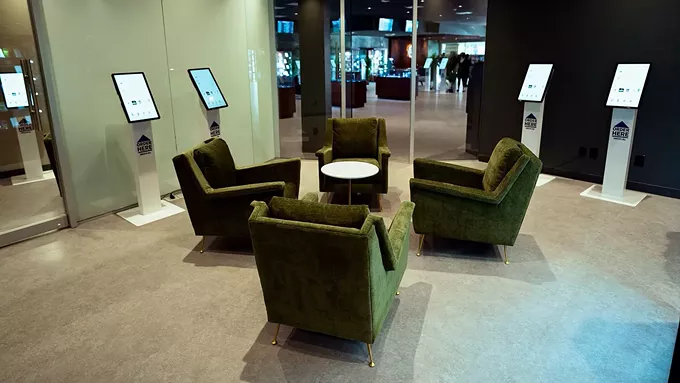
“It’s a bad reflection on our industry,” Cerepanya added. “And it sets back all the strides that we’ve made over the last few years to put in regulations to make it a safe and responsible business.”
Even though dispensaries today may seem an accepted part of any suburban neighborhood, respectfully sharing corner retail spaces with Starbucks and Chipotle franchises, the cannabis industry still faces roadblocks other businesses don’t, in terms of limited trade, tax implications, and restrictions on financing.
“The biggest one is banking,” Cerepanya said. “Obviously, with marijuana still being federally illegal, any bank that’s FDIC-insured has a hesitancy to work with anyone in the cannabis industry. I mean, it’s not as bad as it was. When I first got into the industry, if you were just working at a dispensary as a front-line employee, you weren’t allowed to have a bank account. If the bank found out where you worked, they’d shut down your account and you’d have to go pick up a check with the balance — that would happen all the time. So we were all bouncing from bank to bank.
“Now there are local credit unions that will work with us, and it’s not too much of an issue,” Cerepanya continued. “Still, when I went to purchase a house last year, getting a mortgage approved was very difficult. It took about six attempts with different companies, just because of the industry that I work in and the risk involved.”
Tysenn-Asnani hopes the passage of certain legislative bills — and the defeat of others — may help the cannabis industry regain its footing.
She’s against Senate Bill 1271, proposed by Republican state Sen. Sonny Borrelli from Lake Havasu City. The legislation aims to keep the regulation of all hemp-derived products under the Arizona Department of Agriculture, including those that contain Delta-8 THC, allowing for their continued sale in stores without a medical or recreational dispensary license.
Borrelli has lobbied for the bill using the catchphrase “rope, not dope,” insisting that “hemp is part of the cannabis family, but it is not the intoxicant that a lot of folks like to go for,” and dismissing the opposition from dispensary owners as a “turf war” between them and CBD shops.
But those opposing the bill, including the director of the Arizona Poison and Drug Information Center, say that not regulating the synthetic byproducts of hemp-derived products like Delta-8 could result in a public health crisis.
“This goes beyond a threat to our industry,” Tysenn-Asnani said. “I think this is a really big threat to our community and our children.”
She and other dispensary owners are in favor, however, of another piece of legislation: Senate Bill 1466, which would expand the list of qualifying conditions for medical cannabis to include post-traumatic stress disorder and autism spectrum disorder, and also lower the cost of the treatment. At press time, the bill has already passed the Senate and received approval from the Health and Human Services Committee.
“One of the things that the bill proposes is the reduction of medical marijuana card costs to $50 (down from the current fee of $150) with renewals every two years, and 100% waiver of medical marijuana card costs to veterans.”
Tysenn-Asnani believes such changes could persuade more recreational users to go the medical route, driving more traffic to licensed dispensaries where only THC and CBD products that have been lab-tested and approved can be sold. The change could also potentially reverse the steady decline in sales Arizona’s medical cannabis industry has been experiencing since state-licensed sales of recreational cannabis launched in January 2021. By late 2022, medical marijuana sales in Arizona were at $31 million, while recreational sales were close to $74 million.
Puchi stressed that reducing the cost of medical marijuana cards would save customers money. “They’re paying 20% more in taxes for recreational, because the state is taking a good chunk of their money for the excise tax,” she said. “With the card being cheaper to get, we’re hoping more people will go get a license to buy medical cannabis.”
That might also restore some respect to her industry, which she says has been damaged by so many unscrupulous and unregulated Delta-8 diggers wriggling in through the CDB door. Puchi’s Earth’s Healing dispensaries is a family business, with her daughter and son working side by side with mom behind the weed counter.
“Oh, you have no idea the judgmental comments that I got from people when they knew I was applying for this business, knew that my kids would be working with me!” Puchi said with a laugh. “It was not fun, but times have changed, and hopefully they will keep changing in a positive direction.”

